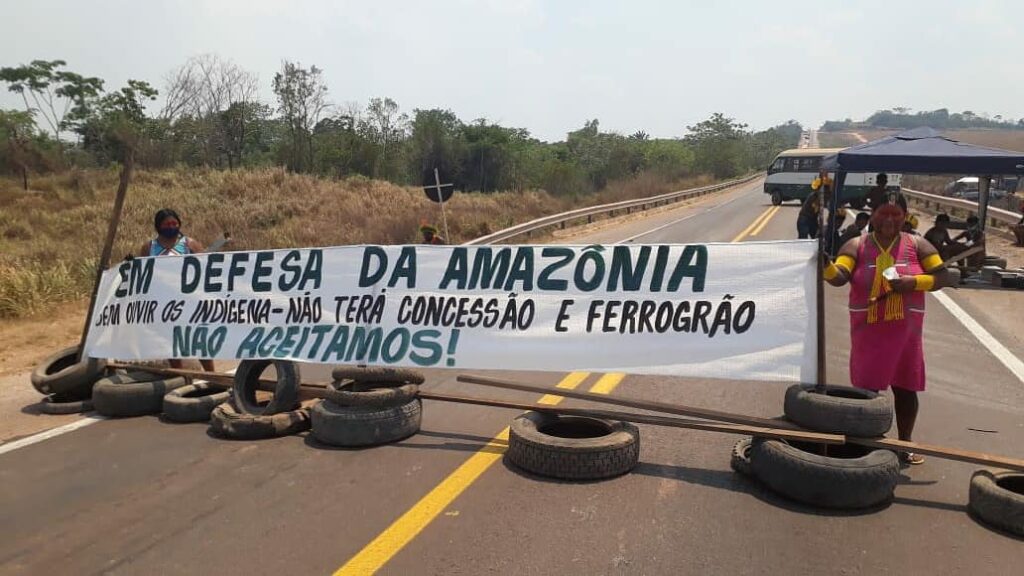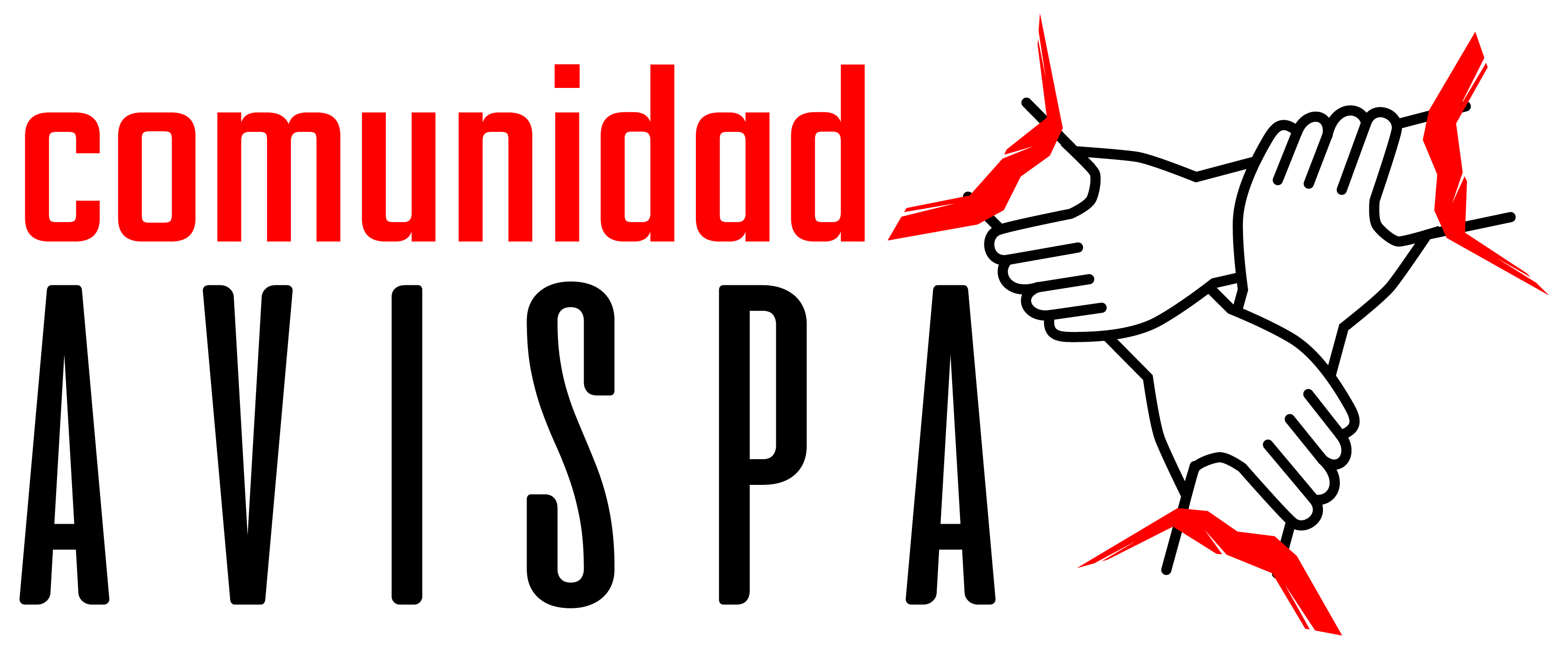Translation by David Milan
In the early hours of Monday, Aug. 17, the Kayapó Mekragnotire people blockaded the BR-163 highway in Novo Progresso in the Brazilian state of Pará using tires, logs, and bows and arrows. They were demonstrating against the government’s inattention to the intense illegal deforestation in their territory, the lack of support for dealing with Covid-19, and the “Ferrogrão” rail line that will cross their lands.
According to the Articulation of the Indigenous Peoples of Brazil (APIB), after the demonstration had gone on for 12 hours, “the Federal Justice of Itaituba (in Pará state) granted a judicial order to clear the demonstrators from the area at the behest of the federal government”.
In addition to the eviction order, Sandra María Correia da Silva, the federal judge from Itaituba district, imposed a daily fine equivalent to $1,800 US on the Kayapó people should they not comply. The blockade was maintained until 11 a.m. Tuesday Aug. 18.
The BR-163 highway is a land route through the Amazon that stretches over 2,800 miles (4,500 km). It crosses the entire country from north to south, connecting the Prata and Amazon watersheds. Agricultural exporters, primarily dealing in GMO soy and corn, have used it as an alternative to the high costs of moving their products along waterways.
This route was built in the 1970s during the military dictatorship and later abandoned when it began to break down. It wasn’t repaved until 2009. There are still 125 miles (200 km) of road that need to be completed, but some areas that had already been paved have started to fill in with potholes.
See also---> U.S. Expands Influence in the Brazilian Amazon During Pandemic
In July, in the middle of the Covid-19 pandemic, Brazil’s National Land Transport Agency (ANTT) presented a draft project called “Ferrogrão” for analysis by the Federal Audit Court (TCU). If approved, the project—580 miles (933 km) of new rail construction—would move into the bidding phase. This line would connect the Mid West region (Mato Grosso state) with Pará. It is one of the Bolsonaro administration’s highest priority plans and would primarily benefit soy-producing companies in the region.
“The construction of the Ferrogrão railway, intended for the distribution of soy produced in Mato Grosso, has a direct impact on the Indigenous lands if the Kayapó people in Pará”, said APIB.

The construction contract will be assigned to the bidder that offers the best value for the concession and, long-term, plans to reduce truck traffic on BR-163, to make the rail line the main route for soy.
In 2017 U.S.-based agroindustrial giant Cargill announced it would compete in the tender with a block of other U.S. and Brazilian companies. It has considered grain merchants such as Archer Daniel Midlands, Bunge Ltd., and Amaggi as potential partners, according to Luiz Petti, president of Cargill in Brazil.
The railway would cross at least 14 protected natural areas, through the Amazon Rainforest and the Cerrado, an extensive region of tropical savanna. This has the Kayapó people on alert, but on top of this, conditions haven’t been easy for them, with Covid-19 cases on the rise among Indigenous peoples. Furthermore, deforestation and illegal mining carried out by “garimpeiros”, who function as paramilitary groups, have been decimating their villages.
APIB demands the “end to deforestation and illegal mining on their reserves” and says, “the Kayapó Mekragnotire blame the authorities for the deaths of four elders and the infection of dozens of people on their land”.
The demonstrators also demanded “support for confronting the Covid-19 pandemic in the region and the expulsion of those invading their lands”.
The highway blocked ended on Tuesday Aug. 18, but the Kayapó have announced that they will continue with their actions, above all against the Ferrogrão railway.


